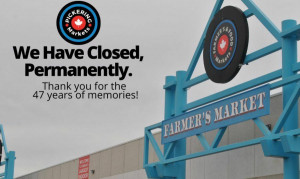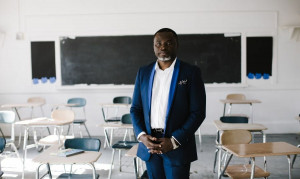Jagdeo is a second-year student at the University of Toronto studying urban planning and human geography. She’s running in the Scarborough-Agincourt byelection scheduled for Jan. 15th, and if she wins, she’ll become the youngest person ever elected to Toronto’s city council. Whoever wins the byelection will serve out the rest of the term and will be able to run for re-election in 2022. Jagdeo decided to run in the upcoming byelection following the removal of former city councillor Jim Karygiannis after it was discovered the now ex-councillor spent $26,000 over his campaign limit.
Jagdeo, who describes herself as curious, passionate, and open-minded, hopes that her candidacy inspires young people, women, and people of colour to get involved with causes they care about. Jagdeo has years of volunteer and work experience that would help her should she get elected. Jagdeo and I spoke about her political aspirations and priorities, lessons learned from living through a pandemic, and why she thinks everyone should care about urban planning.
What was it that first made you interested in politics?
Because politics is all around us and it impacts us. It's also something that I want to influence. It's hard to ignore politics and how it impacts your life, especially given the pandemic. It’s become a lot more apparent how our leader’s decisions impact our lives. So there's that aspect. But I've just always kept up with the news and with issues that I'm concerned about or interested in. If there's ever an opportunity to exercise my right to impact the politics around me, I usually take it, whether that’s with voting, participating in protests, or joining different organizations. Now I have an opportunity to actually become a politician, and that's pretty cool.
Are there any people, politicians or otherwise, who you look up to or who you used as an example of the kind of leader you’d like to be?
My definition of an ideal leader is someone committed and passionate about the issues they’re trying to address. Obviously, there are specific skill sets that should come with being a leader, like effective communication or being a responsible part of a team, but I think your effectiveness as a leader comes through in your honest interest in something. The people in my life that I look up to or are the kind of leader I’d like to be are my parents, my peers, and many of the professors and teaching assistants I've met during my time at U of T. I think that's the amazing part about being in university; you get to meet a lot of people who are super passionate about the things that they study. It's incredible to meet them because they’ve put into action the things that you're learning, and you learn from the passion that they have. Specifically, one of the TAs I had in my first year is doing her MGA (Master of Global Affairs) and a law degree at the same time. She's involved in things like Arctic democracy, green interventions, global affairs, and law. It's amazing because she has established herself but she's always continuing to expand and mentor people. I had such an incredible opportunity to work with her. So I think it's not necessarily politicians that I look up to in terms of leadership or even being able to address issues. It's people that are constantly doing it in their day-to-day lives and don't necessarily need a position in politics to do so.
Was there a particular news story or incident that happened during the pandemic that made you realize that the political process is something that you wanted to get involved in?
I'm studying urban planning and human geography which deals with how urban geographies come to be, how they're planned, organized, and how they shift. With a pandemic playing out in a city like Toronto, you get to see where our strengths and weaknesses are. For example, during the summer when we were allowed to go outdoors and were encouraged to social distance, we saw parks overflow to the point where you couldn't social distance. That was an unfortunate reality that the city has to face. Maybe we don't have enough green and open community spaces to support safely congregating during a time like a pandemic. You recognize that there’s a need for effective city planning. Moving forward from this pandemic is something that I’m interested in because it gives us a unique opportunity for innovation and change. Usually, when you think about planning a city, you think about all the cities that have been planned and established, but you don't think about the things that could change outside of say, public transit or residential areas. I think we’re set to live in a post-pandemic world and we’re now thinking about how cities will look afterward. I want to be a part of that. Again, I’m surrounded by very incredible, intelligent, innovative people, and it's interesting that all of these ideas haven't been implemented already. The pandemic is allowing us to rethink what our cities should look like, and although I want to be involved in shaping that, I also want to encourage other people to be a part of that.
Urban planning is probably not something that’s top of mind when people are assessing someone’s political platform. Why do you think that it’s something more people should know about or be interested in?
I've learned a lot about how the physical structure of my surroundings can impact my identity, my personality, and the way that I operate. I think it's interesting that the way a city is structured and organized can impact you on a broader scale; like architecture can affect emotion and ideas of containment can affect identity. For example, how long does it take me to get to work? How long do I spend underground? How does that impact the way I operate when I get to work or when I come home from work? These seem like very small things, but when you think about how often you spend in constructed spaces that aren't your own it can impact you a lot. So if that’s something that you are conscious of, or want to be conscious of, I think urban planning is something that you should focus on and try to have some involvement. There’s democracy involved in policy, but there's also democracy involved in how we construct the spaces that we live in. One way to exercise that right is to be involved in the planning of our cities. You don’t have to be a politician, it could just be personal interest. Whether a student, employee or just a tourist in the city, your experience matters. Your experience is ultimately built by the spaces that are around you.
Last year, a bike lane was installed on Brimley Road and removed later in the year. Between creating it and getting rid of it, it cost an estimated $240,000. Some people will probably use its failure to justify arguing against initiatives like that in the future. If you were a city councillor, how would you go about creating a bike lane the right way?
I think that the concern with cycling lanes, or any lane that's dedicated to a group of people, is there's the issue of supply and demand. I hope when the city is making these decisions it's because there’s a demand for it. For example, they've evaluated the situation and some people do require a cycling lane, whether that's data from the number of cyclists or the number of accidents. At the same time, if we're trying to make a cycling-friendly city, you need the supply of cycling lanes to encourage people to feel this is a safe opportunity, one you should take part in now that we have dedicated lanes. It's a weird balance, but again, I think one of the most important things about being a leader or representative, is that you are constantly re-evaluating. When you re-evaluate something after a certain point and realize it's not working, it can be unfortunate, especially if ending that project will cost money. At the same time, if it's not working...it's not working. Sometimes you have to bite the bullet. There’s a clear need for cycling lanes in the ward because there have been organizations and individuals who have reached out and are advocating on behalf of that. That's something I would be interested in looking into if it’s feasible. From that point, it’s just a matter of evaluation. Is this working? Is this helping? Is it more of a nuisance? Either way, it’s never just a yes or a no, it’s how do we work around it? But I believe the city is moving towards being a more cyclist-friendly place, and one way you do that is by having space for cyclists to thrive.
Jim Karygiannis, the man you’re hoping to replace, has been a politician for decades. This is your first time running for office. Some people will use your age or your perceived lack of experience to discredit you. How would you respond to that critique?
That’s completely fair if that's what you want out of a politician. If you want someone who has 30 plus years of experience, then you have every right to vote that way. I think what I want out of politicians are lived experiences that relate to me. I’m a citizen of Toronto. I work here. I go to school here. I live here with my family and I hope to be able to start a family here. I would expect my politicians to understand the reality that I'm facing. A lot of the criticisms I get are “why don't you run a household first or have a family?” Because I live in a city where I might not ever be able to afford a house. I don't know if it's feasible to start a family here and that's a reality that I'm facing. I think that’s something important and needs to be advocated for. The people who’ll want to advocate for that reality are not the people who have families and a home that they've paid the mortgage off for, because that's not a reality they're facing. Unfortunately, we don’t see people who understand the lived experiences of people different from themselves, or the condition the city is in. There are more than half a million people under the age of 25 living in Toronto (738,410 as per the 2016 census), which is a significant amount. That’s a lot of us facing the same reality. We’re still getting our education and not sure what the future looks like. We’re in a housing crisis and the cost of living is expensive, so what do we do? I don't know, because there aren't necessarily politicians that are looking out for us.
You’ve said that you consider being young and having little political experience as a positive because it means you have no political ties and you can prioritize the success of the community. Why do you think that politicians lose sight of that once they've been in politics for a while?
There are two parts to that. The first part is you have career politicians. I'm not a career politician. I care about these things right now and I have a means of addressing them now. If I don't have that honest interest and passion in 10 years, then there's no reason for me to keep doing this. I think the issue with career politicians is that they're in it for such a long time because that's the only thing they've dedicated time to. It doesn't mean that your passion and your drive to intervene and solve problems is still there. I think that’s a positive aspect in terms of me being young. It means that I’m acting on my current interests with commitment and dedication. I’m not only evaluating the things that I put out, but I’m also evaluating myself. If I’m not effective and I recognize that, then I should quit. The second part occurs when political parties exert influence somehow. Municipal politics is supposed to be nonpartisan, but you get an idea of what way certain city councillors lean, which is weird to me. You’re supposed to be delivering services to key aspects of the city and that shouldn't be a discussion of left or right in my opinion. Maybe this is just some crazy Gen Z talk, but I think the idea of being supported by a party and being held to those standards limits politicians from acting on things that matter. It limits them from acting in the interest of smaller stakeholders, like small business owners.
Your main platform items are green and recreational spaces, housing, improving public transit, the COVID-19 response and community safety, as well as economic development. Aside from the COVID-19 response, can you tell me why you chose the platform issues you did?
I have goals that relate to the city on a broader level and solutions that I think will address specific concerns of the ward. In regards to green space, that's something that can be expanded to the city as a whole but also specifically to Scarborough-Agincourt. There’s a lack of green and community spaces that are dedicated to different activities, and I think a lot of the residents in the community are looking for those opportunities. With regards to housing, all of Toronto is experiencing a housing crisis, but within Scarborough-Agincourt, there’s a concern with regards to the licensing of shared housing. Also, how are we balancing new residential infrastructure with the support of businesses? With regards to public transit, I'm sure we all have some complaints regardless of what subway line we’re on, but for Scarborough-Agincourt, it’s the lack of connection to the subway. How do we mitigate that? One way I hope to do that is by looking at express bus routes, lanes, and buses. Then there’s also the discussion of LRT vs subways, but that’s a whole other provincial matter.
What do you think your candidacy means, not only to your friends and family but to other people who are from the communities that you represent?
I think representation is important, as empty as it may seem at times. To see someone like you is meaningful and something I've valued as a young woman of colour. Being able to see people like me is a quick and strong indicator that, because you've done it, I can do it. The feedback I’ve gotten from young people and young women so far has been incredible. It’s people that are like, “Hey, it's cool what you're doing. I either want to do this or I am doing this and can we do this together?” I think that's one thing that I want people to get out of this election bid. When it comes to young people who are interested in politics, I did it, I've done it, and I'm doing it. I want to be able to support people who are interested in it because it helps when one of us has done it and can give advice or support. I hope to continue to do that.
Voting Information:
Scarborough-Agincourt residents can go for advance in-person voting on Jan. 8, 9 and 10, and from 10 a.m. to 8 p.m. on election day. People who don’t feel comfortable voting in-person can vote using mail-in voting. All the required mail-in voting materials, including a completed ballot and a signed declaration, must be received by the City of Toronto by 6 p.m. on Jan. 15. Mail-in voting materials can be sent by mail using an included postage-paid envelope or they can be dropped off at Stephen Leacock Seniors Community Centre or L’Amoreaux Community Recreation Centre.

 By
By 





